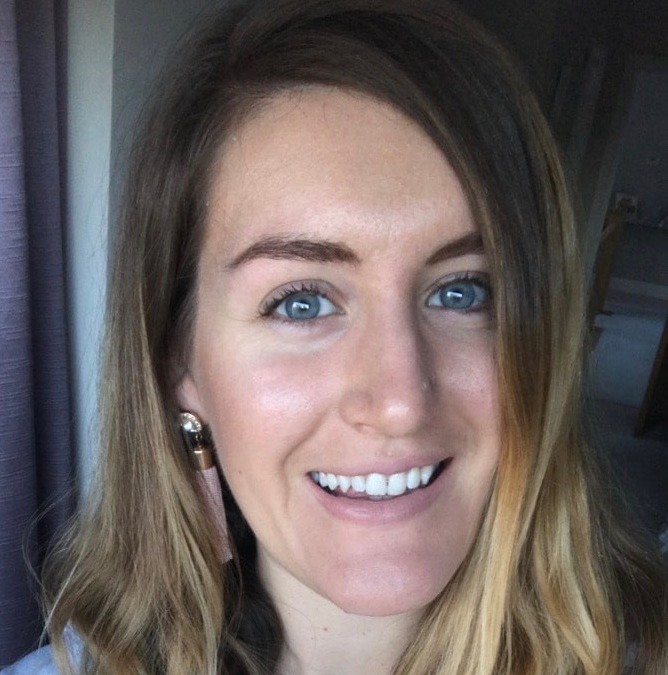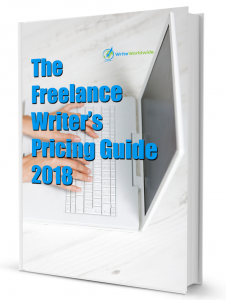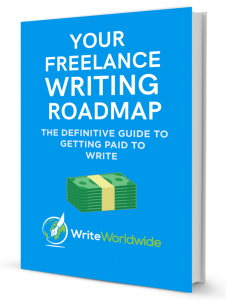This week we interview freelance writer and blogger Katie Davies. Katie talks about how reading and travel inspired her to work for herself, how your passions will show in your work, and why persistence is the key to success.
1) Hi Katie! please tell us a little about yourself and your career as a writer.
I’ve always loved to write. I studied Fashion Marketing and Branding at university and went down the marketing route for a few years, which included aspects of writing, but I struggled working for other people. I always dreamed of being my own boss, getting to call the shots, and being able to pick and choose in regards to work and clients.
I quit my full-time office job in May 2016 to travel the world whilst I tried to figure out how I could successfully make a living working for myself. It was on a particularly hot and sweaty bus ride travelling from Donsak to Krabi in Thailand that I had my epiphany. I’d just finished reading “The 4-Hour Work Week” by Tim Ferriss, which explores the notion of how we should all work to live, and not live to work. I asked myself how I would spend my time if I won the lottery and the answer was blatantly obvious: I would write. I decided there and then that I was going to launch my own service-based business as soon as I got home and become a full-time freelance writer.
2) Did you grow up wanting to be a writer? And how did you break into the industry?
I always wanted to do something that involved writing; however, I only started actively pursuing writing as a career when I launched my fashion and travel blog (www.katiekat.co.uk) at university.
Back then, blogging was a relatively new phenomenon and I wasn’t aware that I could monetize my blog at first, so I just blogged for myself. Eventually, I was able to make income from my blog and it served as a portfolio for when I decided to launch my freelance writing business earlier this year.
3) What advice do you have for beginner freelance writers?
Perseverance is the key to success. It’s going to take you a while to figure everything out, so learn, grow, and adapt as much as you can. Don’t give up at the first hurdle and accept that rejection is part of the job.
Achieving success as a freelance writer is not a race, and it’s better that you truly take the time to develop a sustainable business, than rush to be successful and compromise the quality of your work and operations.
4) Do you have any advice for writers juggling freelance writing with a full-time job?
I was fortunate enough to go from travelling full-time to launching my business full-time, so I was never in a position where I was trying to juggle being a freelance writer with a full-time job. I can imagine that would be quite challenging!
To help me with the financial side of things, I moved back in with my parents for a while when I returned from travelling at the age of 26. If you’re adamant that you want your business to be a success then you will do just about anything to make it work.
5) What’s your opinion on freelance writers choosing a niche?
You have to choose your biggest passions to write about. If you do this, then this passion and positive energy will come across in your writing and make for a more powerful piece of work.
I studied and worked in fashion, so naturally this was the first niche I chose. I then had such a blast travelling and ended up blogging about my adventures so much that I decided to choose travel as my second niche. Essentially, you have to evaluate your passions and pick niches that will make you want to jump out of bed in the morning to write about.
6) Winning new clients is always a hot topic on the WriteWorldwide blog. What’s the most effective prospecting method you’ve used to find new work?
I use a mixture of methods: actively looking on job boards, scouting out social media and creating warm leads on LinkedIn, and cold pitching.
There’s no right or wrong way to look for work. I started out on freelance writing marketplaces like Upwork; however, you quickly realise that it’s difficult to find high-paying clients using these kinds of platforms.
I would say just make sure that you try different methods and do what works for you and for your business. You’ve got this!
7) What do you wish you’d known at the start of your freelance writing career?
Everything I’ve done and not done has got me to the point where I am now, and I’m really happy with the position I’m in, but there are always improvements to be made!
If anything, I wish I’d have had more faith in myself. I was so harsh on myself, and my writing (and still am to be honest), but I wish I’d have cut myself some slack. I spent many sleepless nights worrying and wondering if I could be a successful writer, whether I’d be able to pay my bills at the end of each month, and what people would think of my sudden change in career path.
I needn’t have worried. Seven months later, everything is working out just fine! I have a nice, steady stream of client work, a good income, and I absolutely love what I do. Not many people can say that about their job! I’m very grateful.
8) Tell us about one book, one tool, and one article that have helped you in your writing career
Well, the one book is obviously the one that changed my life when I was travelling around Thailand: “The 4-Hour Work Week” by Tim Ferriss. It’s not writing-specific, but it’s a great resource for aspiring entrepreneurs and people who are keen to live their best life.
In terms of tools, it’s difficult to narrow it down to just one, but I’m a big lover of Jorden Roper’s Writing Revolt Facebook group. It’s a great community for freelance writers, whether you’re a beginner or rather advanced in your career, and there’s always an ongoing discussion about the problems and successes other writers are experiencing. This Facebook group is also an ideal opportunity to network – and it helps that everyone is just so supportive and lovely!
One article that really helped me get started with my freelance writing career is Elna Cain’s “7 Blogs to Help Grow Your Freelance Writing Biz”. [https://elnacain.com/blog/blogs-help-grow-freelance-writing-biz/] This was a really helpful resource to gain access to some of the industry’s top players. In fact, any blog post by Elna Cain was useful when I was starting out – and continues to be useful! She’s such an inspirational lady, juggling a successful career with young twins. I admire her a lot.
9) Who are your biggest influences and people you admire in the freelance writing industry?
Well, I’ve already mentioned Elna Cain and Jorden Roper – those are my top two inspirational figures. I also follow Carol Tice at www.makealivingwriting.com and Bamidele Onibalusi at www.writersincharge.com religiously.
Maybe one day freelance writing beginners will look up to me as much as I look up to these writers? Here’s hoping!
10) What does the future hold for you – are you involved in any new projects related to writing?
I’d like to think my future in freelance writing is bright. I’d love to be able to grow and develop myself not only as an entrepreneur, but as a writer.
I’ll carry on blogging, probably as long as I live, because I love it so much.
At the moment, my clients are based purely online, therefore I’d love to see more of my work in print. The ultimate dream is to have my own book – on what exactly? I don’t know yet – and that’s half the fun of it!
To find out more about Katie, head over to www.dreamscribe.co.uk. Check out the rest of our interviews here.




Thanks Katie for mentioning me as an influence on your writing journey. I love helping new writers be successful! Love your story!